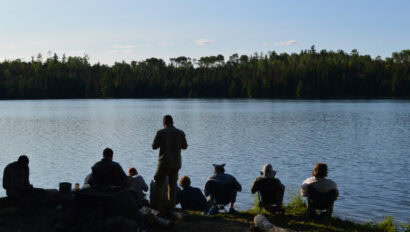But why should we want our kids to be independent? Isn’t childhood all about the bliss and innocence that comes with a life void of responsibility and deadlines? Isn’t childhood about freedom?
Yes it is. But childhood is also a period of transition, and the camper-years are home to a very important stage of development, called Separation-Individuation. During this period, children begin the process of relying less on their parents, and more upon themselves. While delay or disturbance of Separation-Individuation often manifests itself as poor adjustment to college and homesickness, a child that is thriving during Separation-Individuation will enjoy better emotional regulation, responsibility, confidence and relationships with others–including with their parents.
“Successful separation from parents is critical for healthy adult relationships and emotional functioning.”
 So how do we achieve this (And yes, going to camp will absolutely be one of our answers.)? It turns out, kids need discomfort. More and more parents regularly intervene whenever their child encounters a challenge. Audrey Monke points out that this behavior causes children to become “accustomed to immediately seeking adult (usually a parent’s) intervention when faced with any challenge or difficulty.” Instead of an immediate solution, adults should supply guidance and time, allowing kids to problem solve and grow.
So how do we achieve this (And yes, going to camp will absolutely be one of our answers.)? It turns out, kids need discomfort. More and more parents regularly intervene whenever their child encounters a challenge. Audrey Monke points out that this behavior causes children to become “accustomed to immediately seeking adult (usually a parent’s) intervention when faced with any challenge or difficulty.” Instead of an immediate solution, adults should supply guidance and time, allowing kids to problem solve and grow.
 At Camp Chippewa, kids return home each summer with a heightened sense of confidence and responsibility. This comes from the challenges they face. Tasks including getting to activity periods on time, being KP for the day, completing inspection, resolving conflicts and interacting with staff members and adults give our campers challenges as they navigate the path towards independence. Without parents to intervene for them, campers unknowingly practice independence throughout the summer. While it is hard for parents to let go, opportunities for discomfort benefit kids during a vital stage of their development.
At Camp Chippewa, kids return home each summer with a heightened sense of confidence and responsibility. This comes from the challenges they face. Tasks including getting to activity periods on time, being KP for the day, completing inspection, resolving conflicts and interacting with staff members and adults give our campers challenges as they navigate the path towards independence. Without parents to intervene for them, campers unknowingly practice independence throughout the summer. While it is hard for parents to let go, opportunities for discomfort benefit kids during a vital stage of their development.
“One of our most important parenting tasks is to help [our kids] learn to face the world without us.”
So while being alone fuels young people’s growth during Separation-Individuation, experiences at camp also go a step further. Social development starts with complete dependence, but does not end with independence. Before going on their first Canadian canoe trips, campers build a number of skills. How to set up a tent. What to wear in the rain. How to paddle a canoe. How to make a fire. What a standing wave is. Where to find the hatchet. On and on. These allow campers to become independent and care for themselves as they travel through the Canadian wilderness for a week or more. But a high-functioning team does not simply come from a group of independent individuals. Rather, campers at Chippewa begin building interdependence. Interdependence looks like one boy gathering wood, another setting up their tent, another filling the pot with water and another beginning to prepare the fire. Interdependence looks like one boy going back on a portage to help another. Interdependence is a team of boys who care for not only themselves, but each other as well. A single independent camper could not complete a trip that a team of campers could. This is interdependence. Yes there is guidance from camp counselors, and support and love from guardians at home. These are all crucial to youth development. But so are challenges and opportunities for discomfort.
“Being able to trust and depend on others, and being available and reliable to offer the same support in return, are traits our kids need in order to have positive adult relationships.”
Dependence, independence, interdependence. It is a natural continuum of growth for children. What they need are opportunities, challenges, and time away from parents. What they need is Camp Chippewa. As Monke goes on to say, “it feels easier emotionally when our kids just stay put and choose not to go away, but that is not always what’s best for our kids.”
See you at camp this summer.
For more on raising independent healthy kids at home as well as camp, enjoy Chapter 4 of Audrey Monke’s Happy Campers, titled All Kids Can Be More Independent (Even Clingy Homebodies!).


